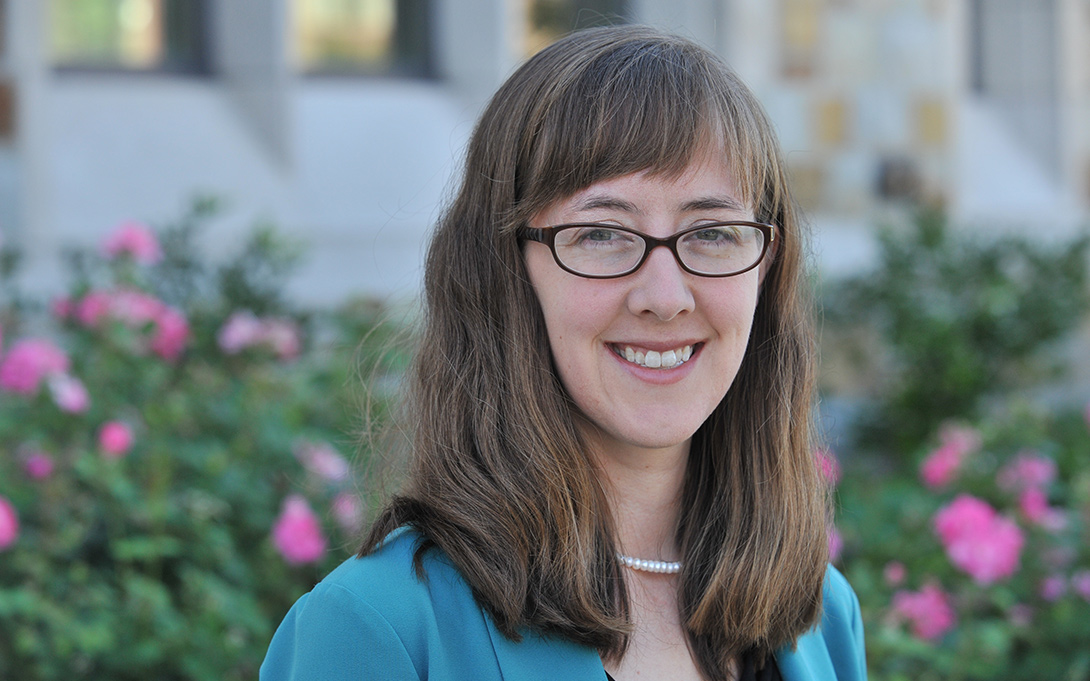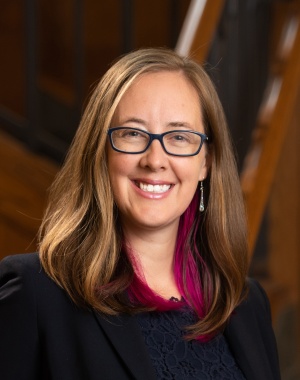
Methane is the primary component of natural gas, a greenhouse gas with 34 times the global warming potential of carbon dioxide. It has been estimated that more than one percent of methane in the U.S. supply chain escapes into the atmosphere, much of which is caused by degraded pipes and loose-fitting components during distribution of natural gas. Ford School professor Catherine Hausman has been studying ways of mitigating that leakage for years. Now her research has been cited as the primary influence of a law that passed in Washington state to address the problem.
Hausman and her research partner Lucija Muehlenbachs of the University of Calgary found that utilities regulators were not creating economic incentives to plug those distribution leaks, which according to the Environmental Defense Fund can amount to 2.6 million tons of methane emissions every year.
“It’s such an important topic in the U.S.,” Hausman says. “Methane has been under-regulated for a long time. While it is a major contributor to greenhouse gas emissions and climate change, regulation at the state and federal level has been severely lacking.”
Their solution: create economic incentives to fix the leaks. In a 2016 working paper, the researchers looked at the way costs were being allocated to the lost methane, primarily through establishing a “societal cost”, which factors in environmental consequences. The cost is far higher than the market rate for methane, and thus creates incentives for utilities to fix the leaks. It works for the utility as well by capturing lost product.
The paper caught the eye of Washington State Representative Sharon Shewmake (D-Whatcom), a fellow economist who also teaches economics at Western Washington University.
“I came across the working paper by Catie and I said, ‘If this is a problem, we should do something about it!’ It seemed like a no-brainer. Climate change legislation has become unnecessarily partisan when it absolutely shouldn’t be. This was a natural bi-partisan bill -- reducing waste, improving the environment and creating more efficiency generally. My first two cosponsors were Republicans,” says Shewmake.
The result was HB 2518, which reforms the incentives for natural gas companies by asking them to complete a cost-benefit analysis on every leak. To do this, a utility needs to look at a specific leak and compare the cost of fixing it to the sum of three factors: the dollar value of the escaping gas, the damage that gas is doing to the climate, and human safety concerns. If the benefits are greater than the costs of the repair, the utility is required to fix the leak.
“Imagine if you went to a gas station and watched the pump charge you for 5 gallons of gasoline, but your car only ended up with 4 gallons in the tank,” Shewmake said at the time the legislation passed in March, 2020.
“That’s what’s happening in our natural gas pipes right now, because old state laws allow natural gas companies to pass the costs of any gas that leaks out of cracked pipes along to consumers. Meanwhile, these same laws don’t give the utilities good options for financing repairs to leaks. That’s backwards.”
Hausman says, “It just goes to show that publishing economic research is a slow process. But in the end, it’s nice to see that work put into practical usage.”
While California has passed similar legislation, other states are still lagging. Hausman hopes that more will look at the same types of incentives.
Shewmake plans to propose the Washington law as a model to the National Conference of State Legislatures and the nonpartisan National Caucus of Environmental Legislators.
“Everywhere that has utilities needs to regulate them as natural monopolies, and regulation will always be chunky. But we are making progress,” says Shewmake. “This kind of cooperation between academia and legislatures is a good idea. I would like to see more of it.”

